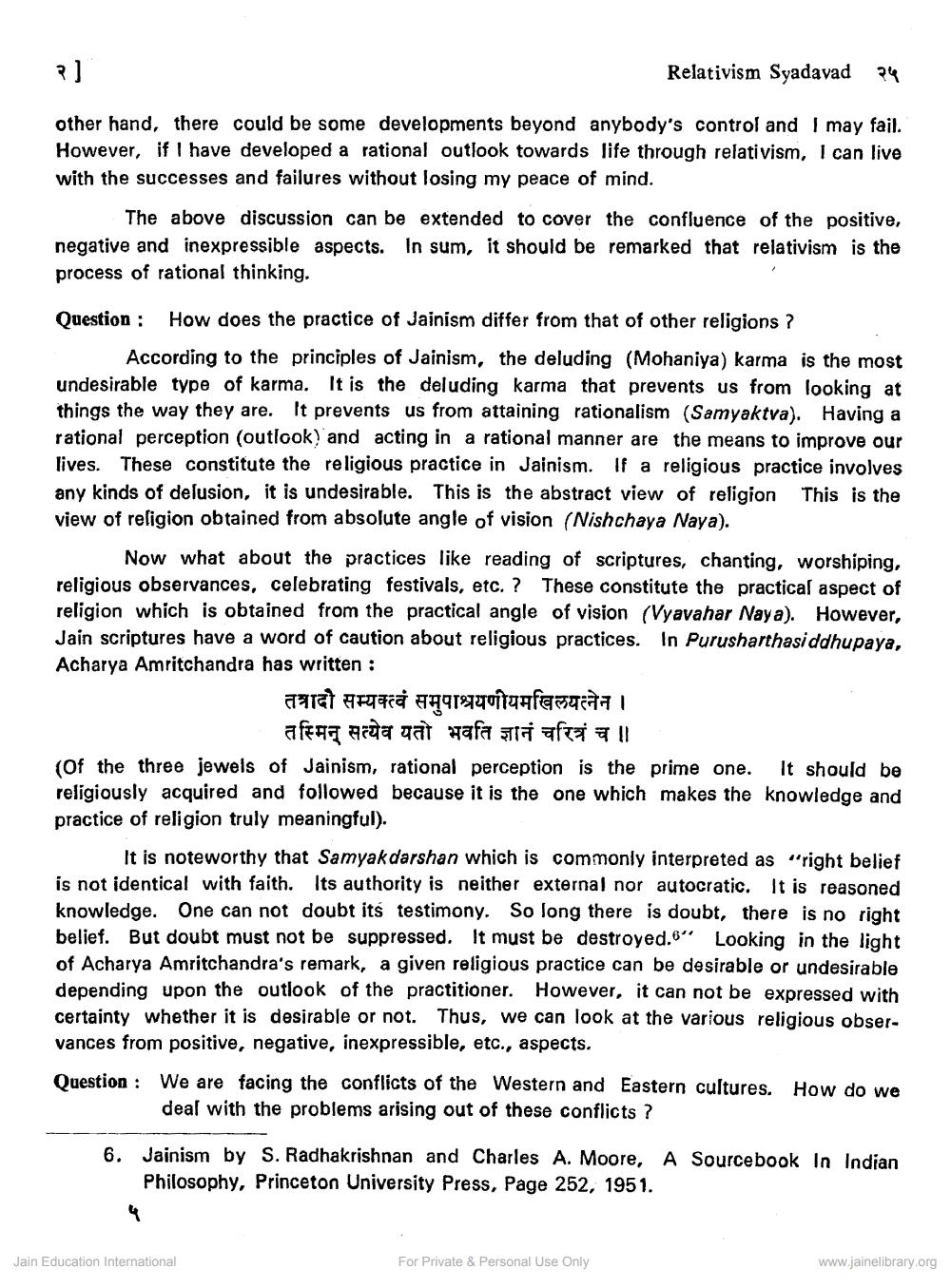________________
?
Relativism Syadavad
34
other hand, there could be some developments beyond anybody's control and I may fail. However, if I have developed a rational outlook towards life through relativism, I can live with the successes and failures without losing my peace of mind.
The above discussion can be extended to cover the confluence of the positive, negative and inexpressible aspects. In sum, it should be remarked that relativism is the process of rational thinking.
Question: How does the practice of Jainism differ from that of other religions ?
According to the principles of Jainism, the deluding (Mohaniya) karma is the most undesirable type of karma. It is the deluding karma that prevents us from looking at things the way they are. It prevents us from attaining rationalism (Samyaktva). Having a rational perception (outlook) and acting in a rational manner are the means to improve our lives. These constitute the religious practice in Jainism. If a religious practice involves any kinds of delusion, it is undesirable. This is the abstract view of religion This is the view of religion obtained from absolute angle of vision (Nishchaya Naya).
Now what about the practices like reading of scriptures, chanting, worshiping, religious observances, celebrating festivals, etc.? These constitute the religion which is obtained from the practical angle of vision (Vyavahar Naya). However, Jain scriptures have a word of caution about religious practices. In Purusharthasiddhupaya, Acharya Amritchandra has written :
तत्रादौ सम्यक्त्वं समुपाश्रयणीयमखिलयत्नेन ।
तस्मिन् सत्येव यतो भवति ज्ञानं चरित्रं च ।। (Of the three jewels of Jainism, rational perception is the prime one. It should be religiously acquired and followed because it is the one which makes the knowledge and practice of religion truly meaningful).
It is noteworthy that Samyak darshan which is commonly interpreted as "right belief is not identical with faith. Its authority is neither external nor autocratic. It is reasoned knowledge. One can not doubt its testimony. So long there is doubt, there is no right belief. But doubt must not be suppressed. It must be destroyed.6" Looking in the light of Acharya Amritchandra's remark, a given religious practice can be desirable or undesirable depending upon the outlook of the practitioner. However, it can not be expressed with certainty whether it is desirable or not. Thus, we can look at the various religious observances from positive, negative, inexpressible, etc., aspects.
Question: We are facing the conflicts of the Western and Eastern cultures. How do we
deal with the problems arising out of these conflicts ?
6.
Jainism by S. Radhakrishnan and Charles A. Moore, A Sourcebook In Indian Philosophy, Princeton University Press, Page 252, 1951.
Jain Education International
For Private & Personal Use Only
www.jainelibrary.org




